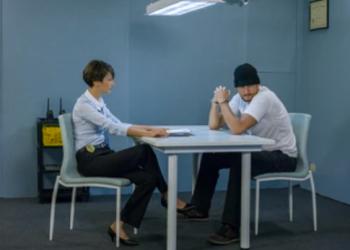
Talking an In-Custody Suspect into Changing his Mind Concerning a Prior Invocation
Indications that an in-custody suspect does not understand what benefits there may be to the assistance of counsel may negate that suspect’s waiver of his Miranda rights. An in-custody suspect who invokes his Miranda rights has the option of changing his mind. Encouraging an in-custody suspect to change his mind about his prior invocation (i.e., “badgering”), however, may negate that change of mind.
Eighteen-year-old defendant Ismael Avalos had an on-going dispute with Angel Rivera, both alleged members of opposing criminal street gangs. Their dispute was only aggravated when Rivera took up with Avalos’ ex-girlfriend; A. Albarran. Defendant at the time of this case was a high school student, still living with his parents, who had no prior criminal record except for “some dumb thing” (not otherwise described) he’d done as a minor. On May 25, 2012, defendant spent the afternoon drinking beer in his family’s garage with a friend; George Galvan. After apparently drinking all day, Galvan drove defendant and several other homies to a cul-de-sac—Mayfair Street, in Anaheim—where some 15 to 20 other young people were hanging out. Amongst the group at the cul-de-sac were Rivera and Albarran. Without warning, defendant and another companion walked up to Rivera, drew firearms from their respective waistbands, and fired twice each, killing Rivera with a gunshot wound to the head. Defendant and the companion ran back to Galvan’s car and went home, defendant bragging to Galvan that he’d “lit some fool up,” and “dumped on someone.” An investigation quickly led to defendant as one of the shooters, resulting in his arrest the next day. He was taken to the Anaheim Police Department where he was questioned by Detectives K. Schroepfer and J. Trapp in separate videotaped interviews. Det. Schroepfer started off the interrogation during which defendant was handcuffed to a table. Without beating around the bush, Det. Schroepfer read defendant his Miranda rights at the very beginning of the questioning. The detective obtained defendant’s acknowledgement that he understood each of the rights, one by one, as she read them to him. (Good interrogative technique, by the way.) However, when told that he had “the right to the presence of an attorney before and during any questioning,” and asked if he understood that right, defendant said in response; “What do you mean an attorney like . . .” (The remainder of this comment was unintelligible, with the detective and defendant talking over each other.) After Det. Schroepfer re-read the admonition, defendant asked: “That means that (unintelligible) someone can tell me something like (unintelligible).” The detective responded: “Like an attorney.” When pressed for a yes-or-no response, defendant finally said he understood. Upon completion of the advisal (and without asking for an express waiver), Det. Schroepfer began the interrogation. For the next five hours of questioning—first by Det. Schroepfer and then Det. Trapp—defendant denied any involvement in the murder except to admit that he had been present at the scene. This interrogation was interrupted at one point so that a forensic technician could take defendant’s clothing, giving him a paper gown to wear. The interrogation was later interrupted again so that defendant could speak with his parents who, upon defendant’s continued denial of guilt, told him that they were going to get him an attorney. When Det. Trapp renewed her interrogation—playing on his mother’s crying as she left the police station—defendant commented; “I can't talk to a lawyer or nothing or what?” When told that he could, defendant invoked his right to the assistance of counsel. Specifically: “Can I talk to a lawyer? . . . Yeah. That's what I wanna do. I wanna talk to a lawyer.” Defendant then asked; “Think that’s a good choice or not? Det. Trapp responded with: “That’s, that’s . . . I, I can't make that choice for you. That's something that you have to decide.” But then, after telling defendant she (Det. Trapp) was going to take him down to the bathroom, she continued on: “You know what, go down (sic) you think about it, you know, if you think that’s the right choice for you, great, you know.” She then added: “All I’m saying is, is, is I respect your decision that you wanna talk to a lawyer, but if for some reason you change your mind and you wanna talk to me, you can, just ask for me. I don't care if it's 2:00, 3:00 in the morning I’ll come back. Okay? Because I care about you getting your story the right way out. Okay?” The next day, while still in an Anaheim P.D. holding cell and still in his paper gown, defendant told the jailer that he wished to talk to the detectives again. So he was brought back up to the same interrogation room. A third detective— Det. S. Wyatt—first contacted defendant there. After insuring that defendant was warm enough (still in his paper gown, without shoes or socks, and having spent the night in an apparently cold holding cell), and that he was “good with (his) drink,” defendant indicated that he had a question. Defendant then asked: “Whatever I tell my lawyer, he's going to tell you the same thing, right?” Det. Wyatt responded: “Not necessarily, I . . . (unintelligible) umm, I want to talk to you about that.” Det. Schroepfer took over for Det. Wyatt, verifying that he had told Det. Trapp the evening before that he wanted to talk to a lawyer before proceeding. Defendant then asked: “It make a difference if I talk to a lawyer first or you guys?” Det. Schroepfer responded: “You know, I can’t tell you either way, it, that makes, you know, that’s your decision but since you did asked (sic) for a lawyer, I want to understand is you contacted umm one of the jailers and asked to talk to the detectives again. [[sic]]. Is that right?” Defendant responded: “Yes.” After verifying that the decision to talk to the detectives was of his own “free will” and that no one was “forcing” him, or that he had been “promised . . . anything,” Det. Schroepfer re-read defendant his Miranda rights, getting a statement of understanding after each right was recited, including his “right to the presence of an attorney before or during any question (sic).” Defendant responded with an unequivocal “yes” to this question. Again without an express waiver (see Note, below), defendant then proceeded to admit to shooting Rivera, but claimed it was in self-defense; that it appeared that Rivera was about to draw a weapon, and that he “fear(ed) for my life,” so he “just shot him.” Per defendant: “I self-defended myself, you know?” After some further discussion concerning his prior history with Rivera, and who the other shooter might have been, defendant eventually invoked his right to counsel again (“I don't want to say anything more until I see my lawyer.”), ending the interrogation. Charged in state court with murder, defendant’s recorded confession (or more correctly, “admissions,” in that while he admitted to killing Rivera, he claimed it was in the lawful exercise of his right to self-defense) were allowed into evidence against him. He was convicted and appealed.





